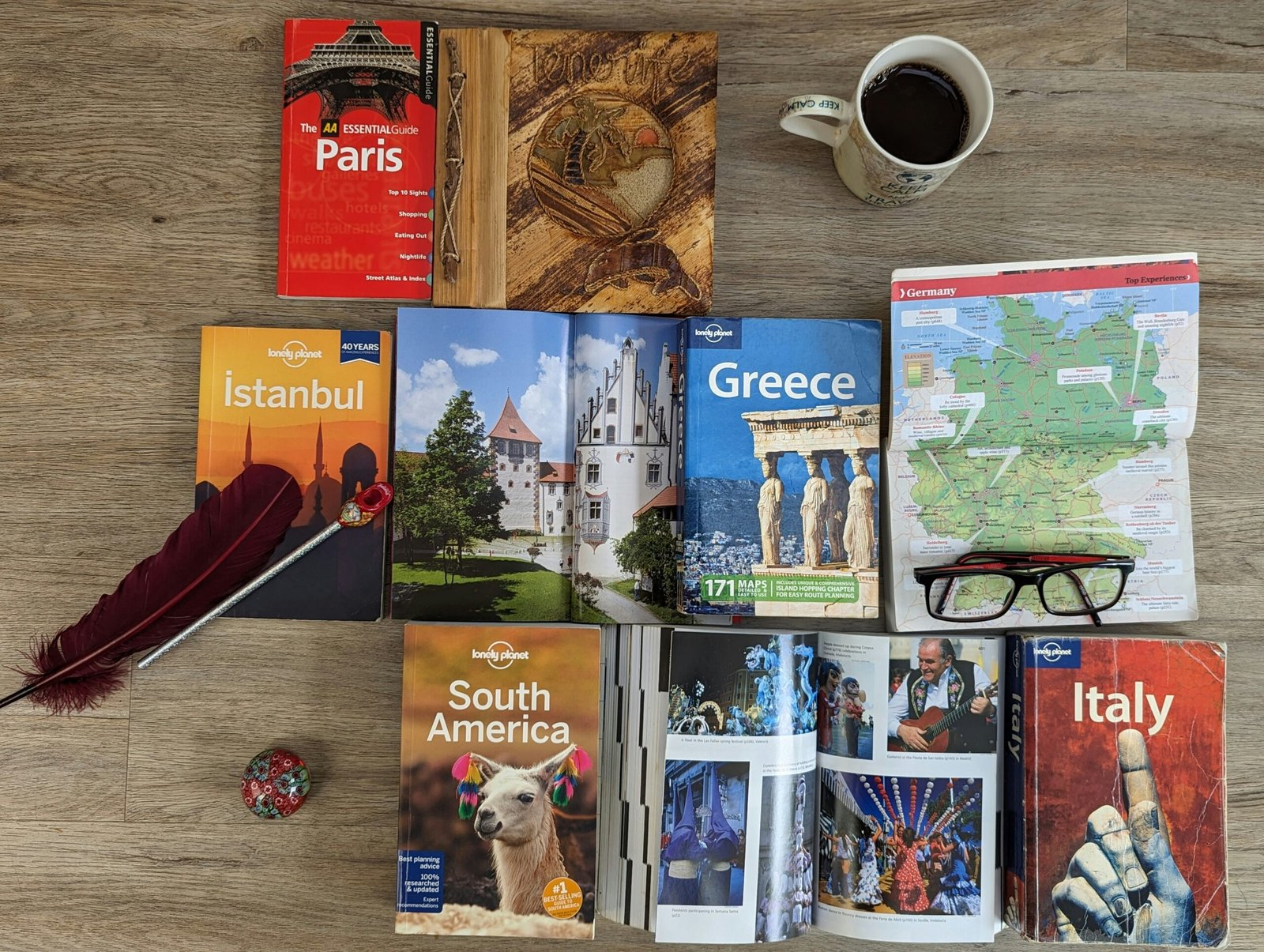Understanding AI in Travel Planning
Artificial Intelligence (AI) has become an integral aspect of various industries, with travel planning being one of its most promising applications. The incorporation of AI algorithms into the travel sector is revolutionizing how individuals plan their journeys, delivering a more tailored and efficient experience. At its core, AI in travel planning involves the processing of vast amounts of data to discern user preferences and behaviors, thereby enabling the generation of personalized recommendations.
Travel platforms utilizing AI employ machine learning algorithms that analyze historical booking data, user interactions, and even real-time travel trends. By leveraging this wealth of information, AI can identify patterns and preferences unique to each traveler. For instance, based on previous travel itineraries, AI can suggest destinations, accommodations, and activities that align closely with a user’s likes and dislikes. This level of customization far surpasses traditional travel planning methods, which often rely on generalized information and consumer feedback.
One of the significant benefits of utilizing AI in travel planning is the speed and efficiency with which it can process data. Unlike human planners, who may take considerable time to sift through options and make recommendations, AI tools operate at a pace that facilitates instant suggestions. By employing natural language processing and other advanced technologies, these tools can engage in meaningful interactions with users, answering queries and providing information in real time.
Moreover, AI continues to evolve, integrating with other technologies such as virtual reality and big data analytics to enhance the travel planning experience further. As travelers increasingly seek custom-tailored experiences, AI tools promise to deliver results that align more closely with their preferences, leading to more fulfilling travel adventures. In effect, the integration of AI into travel planning marks a significant evolution from traditional practices, emphasizing personalization as a central focus.
Top AI Tools for Personalized Travel Planning
The travel industry has experienced a significant transformation with the advent of artificial intelligence. A range of tools now empowers travelers to customize their journeys, resulting in personalized travel experiences. Among these tools, a few stand out due to their exceptional features and usability.
One of the leading platforms is TripIt, which utilizes AI to organize travel itineraries. Upon entering travel details, TripIt automatically compiles information such as flight details, hotel reservations, and car rentals into a cohesive plan. This simplifies the often chaotic process of planning while ensuring that travelers have all their information available in one place.
Kayak is another noteworthy tool that leverages AI to personalize travel planning. Users can receive tailored accommodation suggestions based on past preferences and current needs. Kayak’s strength lies in its comprehensive search capabilities, allowing users to find the best deals on flights, hotels, and car rentals, all while providing dynamic price alerts.
Hopper is particularly renowned for its price prediction features, which utilize historical data and machine learning to suggest the best time to book flights and accommodations. This tool helps users save money by analyzing and forecasting price trends, making it an excellent resource for budget-conscious travelers.
For a more interactive experience, Travelmate integrates chatbot technology to assist users with real-time travel inquiries. This AI-driven app provides personalized recommendations for local attractions, restaurants, and excursions based on user preferences and queries. The chatbot feature enhances usability, as it allows for immediate responses and tailored suggestions to enhance the travel experience.
In conclusion, the best AI tools for personalized travel planning offer a variety of functionalities, accommodating different traveler needs. From organizing itineraries to providing price predictions and recommendations, these tools significantly streamline the travel planning process, ensuring a more enjoyable experience for travelers. By leveraging AI technology, travelers can receive targeted assistance that caters to their unique preferences and expectations.
Benefits of Using AI for Travel Recommendations
In recent years, the application of artificial intelligence (AI) in travel planning has significantly transformed the way individuals conceive and experience their trips. One of the primary benefits of AI tools is the increased efficiency they offer. Travelers can leverage AI platforms to quickly assess options for flights, accommodations, and activities, thereby reducing the time spent on planning. By automating mundane tasks, AI allows for a more streamlined approach to travel arrangements, enabling users to focus on the excitement and anticipation of their upcoming journeys.
Moreover, AI excels in delivering enhanced personalization tailored to each traveler’s preferences. Utilizing real-time data analysis, these tools can provide tailored recommendations based on personal interests, past travel behavior, and even current trends. For instance, a traveler who frequently opts for adventure activities may receive suggestions for thrilling excursions that align with their adventurous spirit. This level of personalization ensures a unique travel experience that resonates with the individual’s desire for exploration.
Accuracy is another advantage offered by AI when it comes to travel recommendations. AI algorithms analyze countless data points to match users with experiences they are most likely to enjoy. This targeted approach minimizes the chances of dissatisfaction caused by generic suggestions. Furthermore, AI tools can assist travelers in budgeting their trips effectively. By providing cost-effective suggestions tailored to individual financial preferences, AI enhances the travel planning process, ensuring that users can enjoy their trips without overstretching their budgets.
Overall, the benefits of using AI for travel recommendations are manifold, contributing to a personalized, efficient, and enjoyable travel planning experience. By harnessing the power of AI, travelers can truly revolutionize their approach to planning and enjoying their adventures.
Future Trends of AI in Travel Planning
As the travel industry continues to evolve, the integration of artificial intelligence (AI) is poised to usher in a new era of personalized travel planning. Emerging technologies like machine learning and predictive analytics are becoming cornerstone tools in the development of advanced AI systems that can predict traveler preferences and behaviors more accurately. These technologies harness vast amounts of data, enabling AI algorithms to learn and adapt over time, which enhances the overall travel planning experience.
One key trend is the potential for fully automated travel planning services. With AI-driven platforms increasingly available, travelers can expect streamlined processes that require minimal human interaction. These services utilize natural language processing to understand user queries and preferences better, allowing for instantaneous recommendations that align precisely with individual needs. Such developments promise increased efficiency and convenience, leading to a transformation in how people plan and book their trips.
Another anticipated trend is the rise of hyper-personalized travel experiences made possible through AI. By analyzing past travel behaviors, preferences, and social media activity, AI can curate tailored itineraries that cater specifically to an individual’s tastes. This level of personalization extends beyond basic offerings; for instance, AI could suggest unique local experiences or dining options that resonate with a traveler’s interests, ultimately enhancing the quality of their journey.
In addition, advancements in AI could facilitate real-time adjustments to travel plans. For example, if a traveler is delayed, AI systems can automatically reroute connections, suggest alternate accommodations, or propose new activities based on the updated schedule. The seamless integration of these capabilities reflects the potential of AI to not only simplify the planning process but also enrich the overall travel experience, ensuring that every journey is not only well-planned but also adaptable and rewarding.









